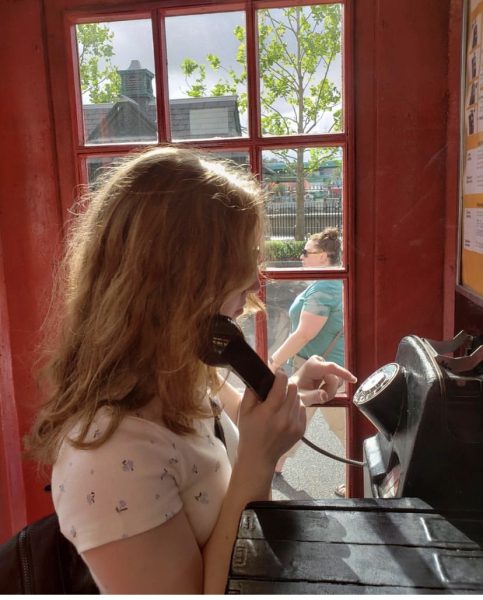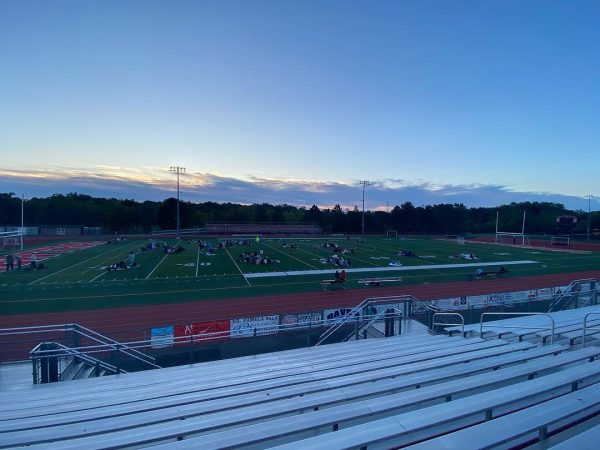It’s Okay to be SAD
When the cold winter months shut us inside and every day begins to feel the same, it’s easy to feel a bit worse. Warm days are a distant memory, and every morning is unbearably dark and cold. With less amount of sunlight, serotonin, melatonin, and vitamin D levels are thrown off. In extreme cases, all these factors combine and take the form of Seasonal Affective Disorder, or Seasonal Depression.
It can begin in the summer, but the type most prevalent here starts late fall/early winter and doesn’t go away until Spring. Symptoms can include:
- Feeling down (not occasionally, but almost every day)
- Feeling of guilt, hopelessness, irritable, or worthlessness for no reason
- Sleeping too much or too little
- No energy, feeling tired all the time
- Loss of interest in activities that were once enjoyable
- A sudden change in appetite, like excessive carbohydrates cravings or skipping meals
- Difficulty concentrating
While all of these are very similar to other mental illnesses, the difference is that they always begin once the weather becomes colder and days are darker. If not treated, these can all lead to more serious issues like social withdrawal, problems at work and school, substance abuse, and additional mental health issues.
So how does this happen? If humans can survive sickness and famine, why does a little less sunlight make us depressed? When the eyes come into contact with sunlight, the serotonin-producing part of the brain is stimulated. Also, your Circadian Rhythm knows to produce melatonin when the sun has gone down, which helps put you to sleep. In other words, your body produces more melatonin in the winter, which is one of the contributing factors to seasonal affective disorder. With barely any sunlight in the day, these chemicals are thrown off. This can change everything from your sleep cycle, mood, and appetite. While the exact cause can’t be pinned down, these combined with other stressors can contribute to seasonal depression.
Too often this form of depression flies under the radar. Those affected resolve to just suffer through it, then forget about it from spring until the next winter. But it is as real as every other type of mental illness, and conditions will only worsen until the person affected acknowledges it and begins treatment. The most important step is acknowledging that it could be depression, and taking the right steps to begin treatment. It’s primarily diagnosed through a mental health exam by a professional. Your general practitioner can make the diagnosis, but you can also ask them to refer you to a mental health specialist for further treatment. Here at Central, stopping in at the ‘Zen Den’ or the counselor’s offices for an emergency meeting is always possible. For long term solutions, you can refer yourself to a Student Assistance Counselor or meet with your grade-level counselor about speaking with the therapists here from Hunterdon Medical Center.
The thing with depression and most mental health issues is that it takes a moment to work, since you literally have to rewire your brain. It isn’t something someone can just get over, or move past. Healing is a long-term game that can be incredibly frustrating, but incredibly rewarding if you put in the time. Treatment options include the usual talk-therapy, or psychotherapy, to help manage symptoms and find coping strategies. Again, Hunterdon Central is capable of providing therapy or Hunterdon Medical Center can either refer you to their department or give outside recommendations. Another option is the newer light therapy. As one of the few seasonal depression-specific treatments, it involves sitting near artificial light that mimics sunlight for 30-60 minutes directly after waking up. They can be purchased (about $30 on amazon), but you might want to speak with your health care provider first as there are many different types. Lastly, antidepressants can be very helpful, especially for more severe cases. They may take a few weeks to truly start, and side effects can make it difficult to find the right medication. However, it’s always worth it to just start looking for help.
Aside from the more involved treatments, there are a few steps you can take at home on your own. Although we hear it everywhere, a proper sleeping schedule can really help make a difference. Don’t put schoolwork or extracurricular activities first, those extra hours never make a difference anyway. Your sleep is more valuable. Avoid artificial light, eating, and exercising at least an hour before bedtime. Also, even though it’s cold, bundle up and go spend some time outside in the sunshine. Humans were not meant to be indoors all day. Even something as small as sitting closer to a window when you do your homework can help, or keeping bright lights in your home. Most importantly, maintain your connections with others; self-isolation helps no one.
Winter does not have to be miserable. If it usually is, perhaps you should consider speaking with your doctor about getting diagnosed and starting treatment. It may feel like this is just how it always is, but consider that it doesn’t have to be that way. Getting help can completely change your life. I hope that at least some of this information will be absorbed, and remember that there is always help for people who need it.
https://www.hopkinsmedicine.org/health/conditions-and-diseases/seasonal-affective-disorder
https://www.nimh.nih.gov/health/publications/seasonal-affective-disorder










